How to prepare your family for a coronavirus outbreak
With a rising number of confirmed coronavirus cases, the Prime Minister has told Australians to be ready for the worst. Here’s how to prepare your family.
Fears of a pandemic have been realised, with the coronavirus now classed as a disease that is spreading in multiple countries around the world at the same time.
The deadly COVID-19 disease prompted Prime Minister Scott Morrison to tell Australians to prepare for the worst.
So what’s the best way to prepare your home in case of a coronavirus outbreak in your community? Here are the areas you need to prep — including what types of food to avoid stocking up on.
RELATED: Follow the latest coronavirus update
RELATED: Countries where the virus has been confirmed
Here are photos of other aisles emptied - rice, pasta, water, tissues. North Rocks Coles, NSW, Australia 2 Mar 2020 6.45pm. #CoronaVirusUpdate #coronavirusaustralia #coronavirus #Covid_19 #COVID19 #panicbuying #CoronaOutbreak #CoronavirusOutbreak #COVIDー19 pic.twitter.com/ASKCgBmLqO
— Ammy Kwong (@ammykwong) March 2, 2020
FOOD YOU SHOULD BUY NOW
To prepare for a pandemic the US Department of Homeland Security recommends people store a two-week supply of food and water.
This is important not only for stopping coronavirus from spreading if you become infected, but also because standing in a queue at a supermarket is the last thing anyone wants to do when you’re sick.
Infectious disease physician Amesh Adalja, who is a senior scholar at Johns Hopkins University’s Center for Health Security, told NPR that your supply should include non-perishable food items.
Columbia University Medical Centre paediatrician Edith Bracho-Sanchez said food stockpiled should include your go-tos when you’re sick with a cold or flu such as vegetable broth or chicken noodle soup, hydrating drinks like Gatorade and crackers.
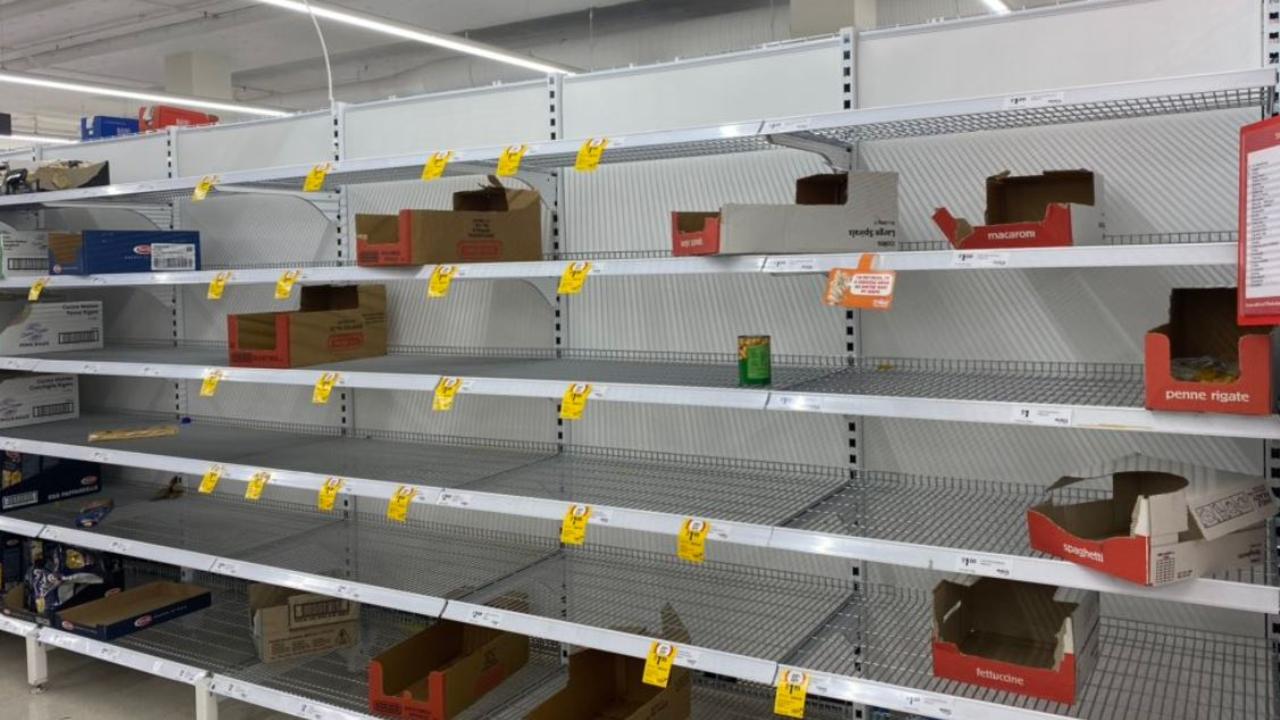
FOOD TO AVOID STOCKING UP ON
In a blog post Brisbane-based University of Queensland virologists Katherine Arden and Ian M. Mackay broke down what foods you should buy and avoid if a coronavirus pandemic occurs.
For now people should focus on steadily building up a two-week supply of non-perishable fibre, carbohydrate and protein foods.
Only if “severe” pandemic hits should you start stocking up on perishable foods as it could mean those supplies run out.
When that occurs, Professors Arden and Mackay advised people to buy up bread, meat which you can freeze, dairy products like milk and yoghurt, eggs, fruit and vegetables.
“In a more severe pandemic, supply chain issues may mean fresh food becomes harder to get,” they wrote.
“So this list is an add-on to the one above, and its items should be the last things to buy if you have a hint of when supplies might slow or stop for a (hopefully short) time.”
A Coles spokesperson said the supermarket did not advocate hoarding of goods and said shelves were being regularly restocked.
“Coles is committed in delivering the best service to all Australians and during this challenged time is committed in ensuring all Australian communities have access to the products and services we all need.”
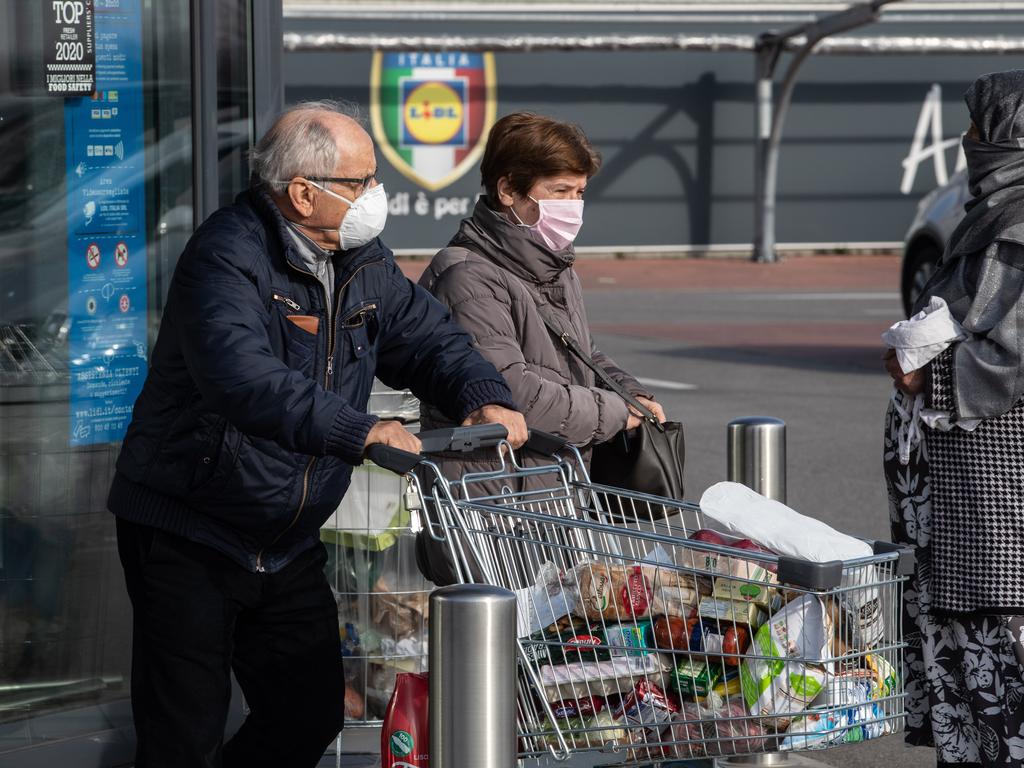
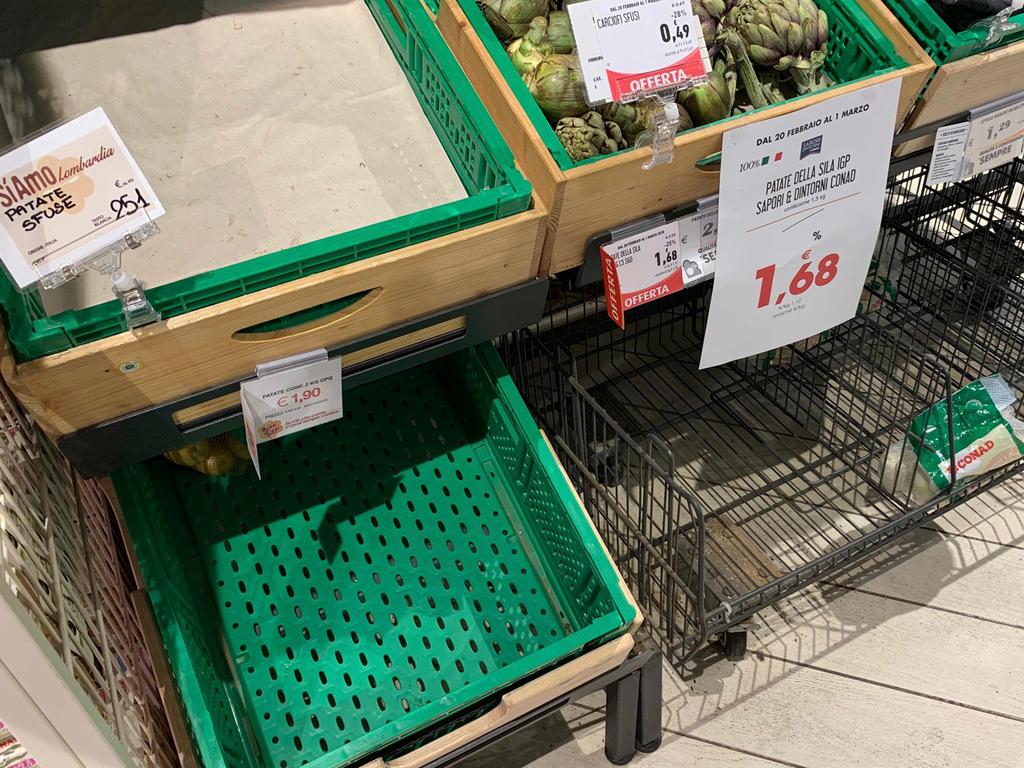
MEDICATION
Equally important to making sure you have medicine to treat coronavirus’ flu-like symptoms is having a supply of your regular medication.
Center for Global Health Science and Security at Georgetown University director Rebecca Katz told NPR people should make sure they have a supply of any daily medications to last a few weeks.
Helpful to stock up on in case you get struck down by coronavirus is fever-reducing medications like ibuprofen (Nurofen) or acetaminophen (Panadol).

WASH YOUR HANDS
This goes without saying but washing your hands frequently is one of the best ways to stem the spread of coronavirus — or any kind of infectious disease, really.
According to the Centres for Disease Control and Prevention you should wash your hands for at least 20 seconds — or as long as it takes for you to sing ‘Happy Birthday’ twice.
You should wash your hands as soon as you get home, before and after preparing food, before and after caring for someone that is sick and after using the toilet.
CLEANING SUPPLIES
Unfortunately not everything is known about how long this strain of coronavirus can survive on surfaces.
But when it comes to preventing household surfaces from becoming carriers for other types of coronavirus it is not so much what you clean them with but how often you do it.
Most household cleaners than contain bleach or alcohol are enough to keep coronavirus at bay, Columbia University Medical Center epidemiology professor Stephen Morse told NPR.
If your community or someone in your home gets infected with coronavirus, surfaces that get touched frequently will need to be cleaned often.
Surfaces that should be cleaned regularly include kitchen benches, doorknobs and tap faucets.
RELATED: Coronavirus could impact the Olympics
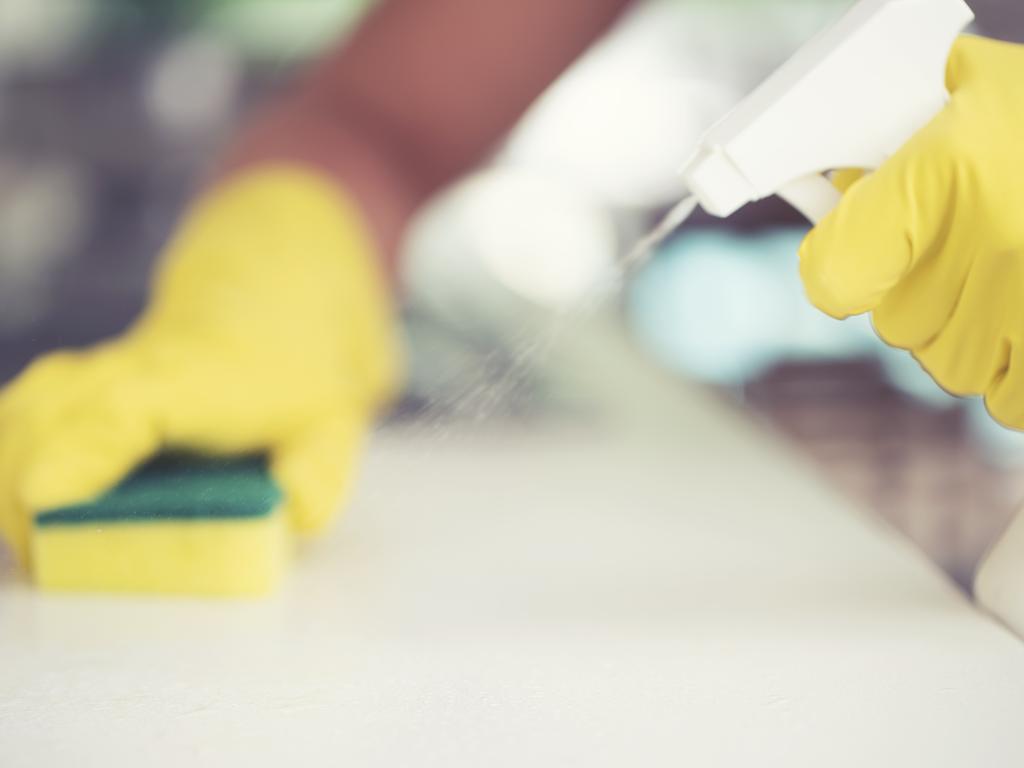
FACE MASKS
It’s worthwhile to stock up on surgical masks in preparation for a coronavirus outbreak in your area, however, it’s important to remember masks have limitations.
According to the Department of Health, face masks are “only helpful in preventing people who have coronavirus disease from spreading it to others”.
There is “little evidence” wearing masks in public stops healthy people from contracting coronavirus.
The World Health Organisation recommends healthy people only wear masks if you are taking care of someone with a suspected case of coronavirus.
WHO also stressed that masks “are effective only when used in combination with frequent hand cleaning with alcohol-based hand rub or soap and water”.
HAND SANITISER
While WHO says washing your hands with an alcohol-based soap is the best way to keep coronavirus at bay using a hand sanitiser can also help.
The CDC recommends using hand sanitiser when you can’t get access to soap and water to clean your hands.
According to the Department of Health, a hand sanitiser that contains at least 60 per cent alcohol is most effective.
Research from the University of Toronto has found that hand sanitisers which contain 70 per cent alcohol is the ideal amount.
“That’s the concentration of rubbing alcohol that is most effective in killing germs — it’s even more effective than 100 per cent. Because it has a little bit of water in it, it improves penetration,” Professor James Scott said in 2012.
A shortage of hand sanitiser is being witnessed in multiple retailers across the country as people rush to stock up in a bid to protect themselves from the deadly coronavirus sweeping the globe.
Shoppers have shared photos from inside various Coles, Woolworths and Chemist Warehouse stores that show the antibacterial gel stripped completely bare from shelves.
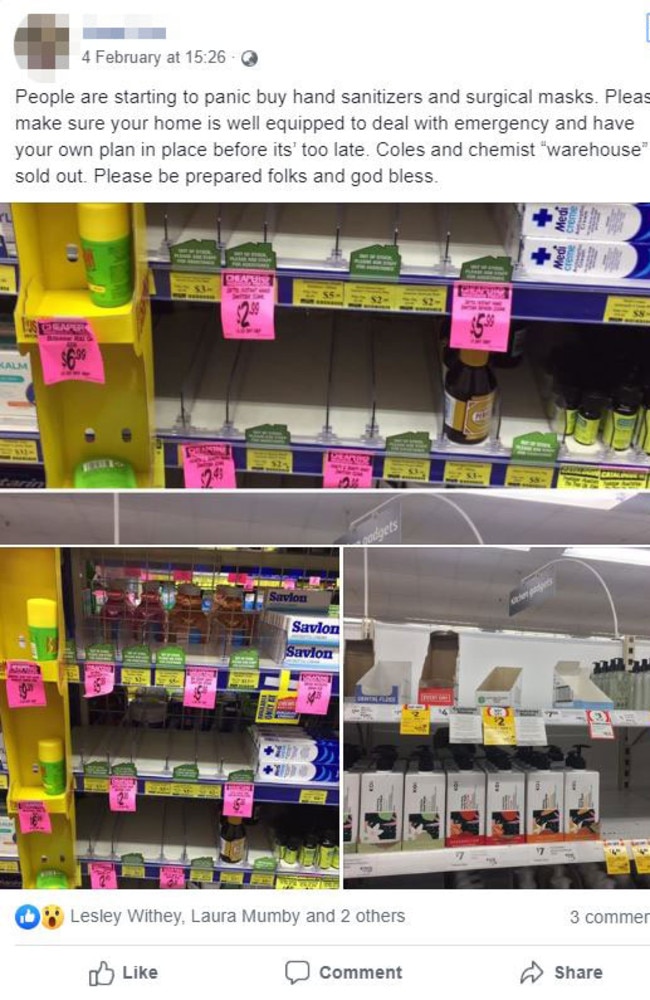
RELATED: Should I cancel my travel plans?
TOWELS
According to US global health expert Laurie Garrett, the worst offenders are towels, which provide a very cosy home for all coronaviruses – including the latest deadly strain.
“Inside your household, remove all of the towels from your bathrooms and kitchen immediately, and replace them with clean towels that have the names of each family member on them,” the Pulitzer Prize-winning Garrett wrote in Foreign Policy.
“Instruct everybody in your home to only use their own towels and never touch another family member’s. Wash all towels twice a week. Damp towels provide terrific homes for viruses, like common colds, flus, and, yes, coronaviruses.
DOORKNOBS
It has become common knowledge that the virus can survive on doorknobs but how many of us worry about the ones we have at home? If someone in your family gets sick, you better get used to washing those handles frequently.
“Be careful with doorknobs. If it’s possible to open and close doors using your elbows or shoulders, do so,” Garrett advises.
“Wear gloves to turn a doorknob – or wash your hands after touching it. If anybody in your home takes sick, wash your doorknobs regularly. Similarly, be cautious with stairway banisters, desktops, cell phones, toys, laptops – any objects that are handheld.
“As long as you handle only your own personal objects, you will be OK – but if you need to pick up someone else’s cell phone or cooking tools or use someone else’s computer keyboard, be mindful of not touching your face and wash your hands immediately after touching the object.”
Additional reporting by Marnie O’Neill




